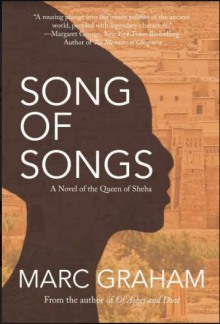“Ah, so this is what the world looks like from the epicenter of grief–”
Songs for Solo Voice
By James R. Whitley

This quote from Here, one of the poems in James R. Whitley’s Songs for Solo Voice, sums up this entire book of thirty-five poems.
After a second reading, I realized the works reminded me of the five stages of grief: denial, anger, bargaining, depression and finally, acceptance. Though Whitley’s book only has four parts, with a little rearranging and a bit of imagination the poems began to take on a significance for me they didn’t have initially.
The entire collection appears to focus on a failed relationship, the death of love, and begins with works that address anger and bargaining. A stanza from Souvenir says it best, “If I take it all back—the jagged insults hurled like careless daggers, the failing stargazer lilies and their accusations of neglect, every unconscionably late anniversary gift—could there be room left for negotiation?”
In Quite Taken, the bargaining continues for a reprieve from the unrelenting pain: “Does it explain my pleas for mercy that continue long after the church has crumbled to dust around me?”
Depression that comes with loss is expressed in Sostenuto, “No matter how striking the tune, the sound after a song has been sung is no sound at all."
The suffering continues, but with a glimmer of acceptance with the realization in Here, “is not just where I am, but where I am meant to be.”
Gradually the poems convey a hint of optimism as in Here, Finally, “…there comes a point when you realize that, no matter how long or torturous, no road is your enemy.” By the end of Songs for Solo Voice, the impression is one of reconstruction and working through, “but know that, when it comes to loss, none of us is immune." (Trembling Deliciously) and “…a game played—however badly, however distressing the ultimate defeat— was an option to win something. (The Inside Story of It)
And finally, in She Hangs Brightly, a declaration of hope; “Trust me when I say you will survive this, despite the difficult music lurking in the background. This is just the music of never-forgetting-her, the score of the rest of your life.”
Whitley uses a number of musical terms, which this reviewer did not understand or initially appreciate. But after looking up their definition found them to be remarkably appropriate in subsequent readings.
When read individually, most of the poems in this collection are exceptional for their raw beauty and intensity. However, as a theme, the bitterness and disappointment, the self-flagellating, and accompanying insecurity become burdensome.
Regret, like worry, is unproductive and tedious

 Log in with Facebook
Log in with Facebook 









